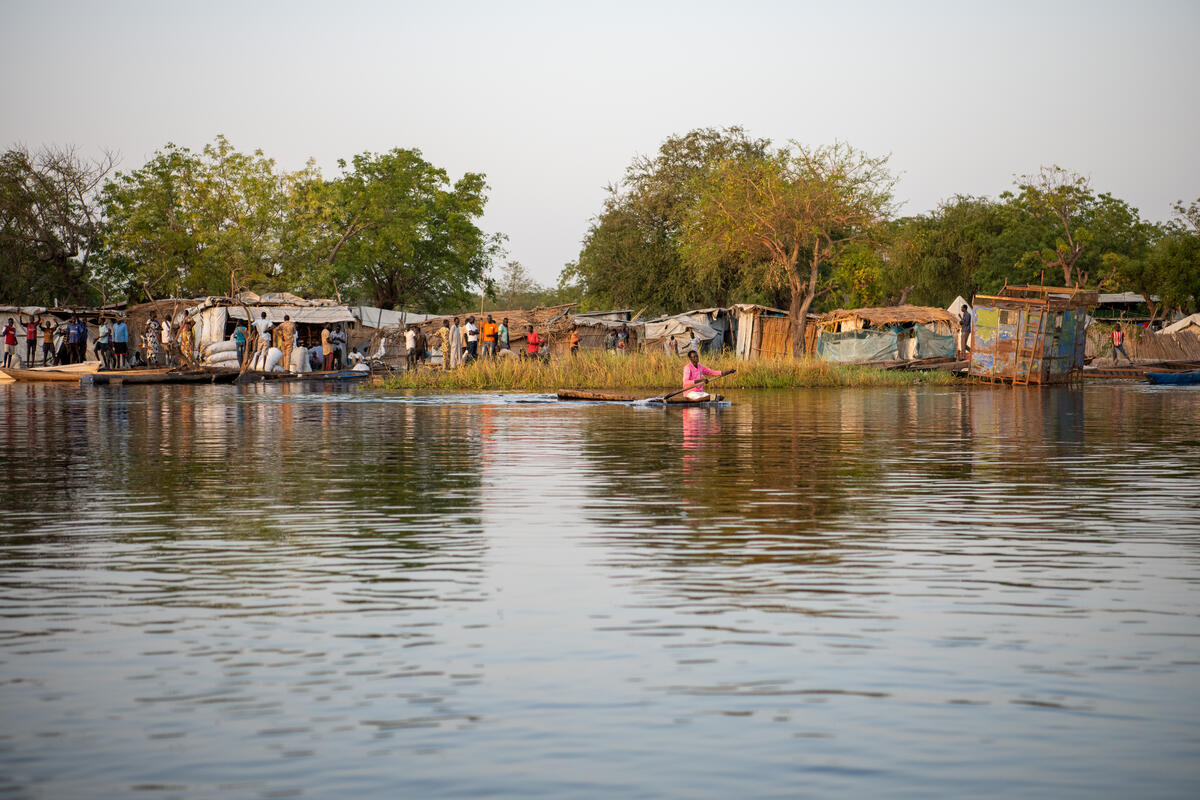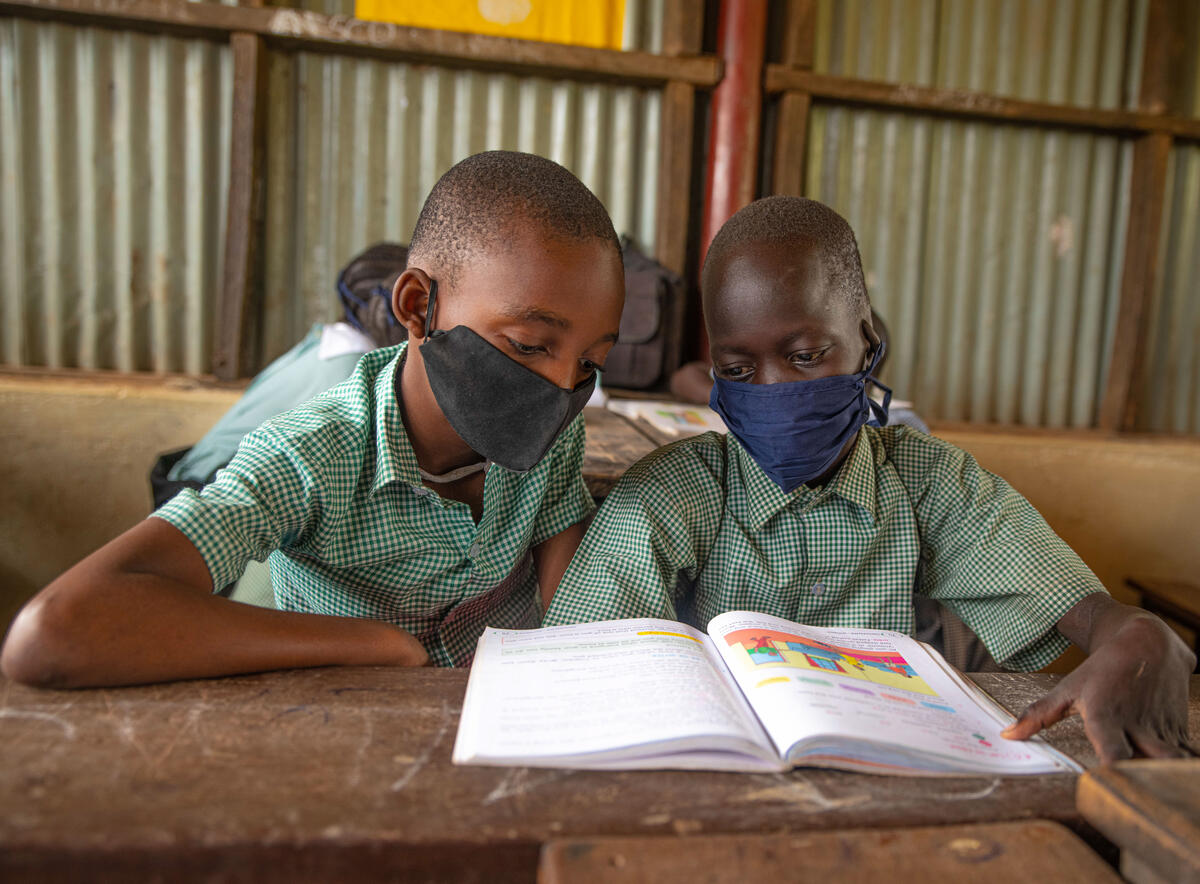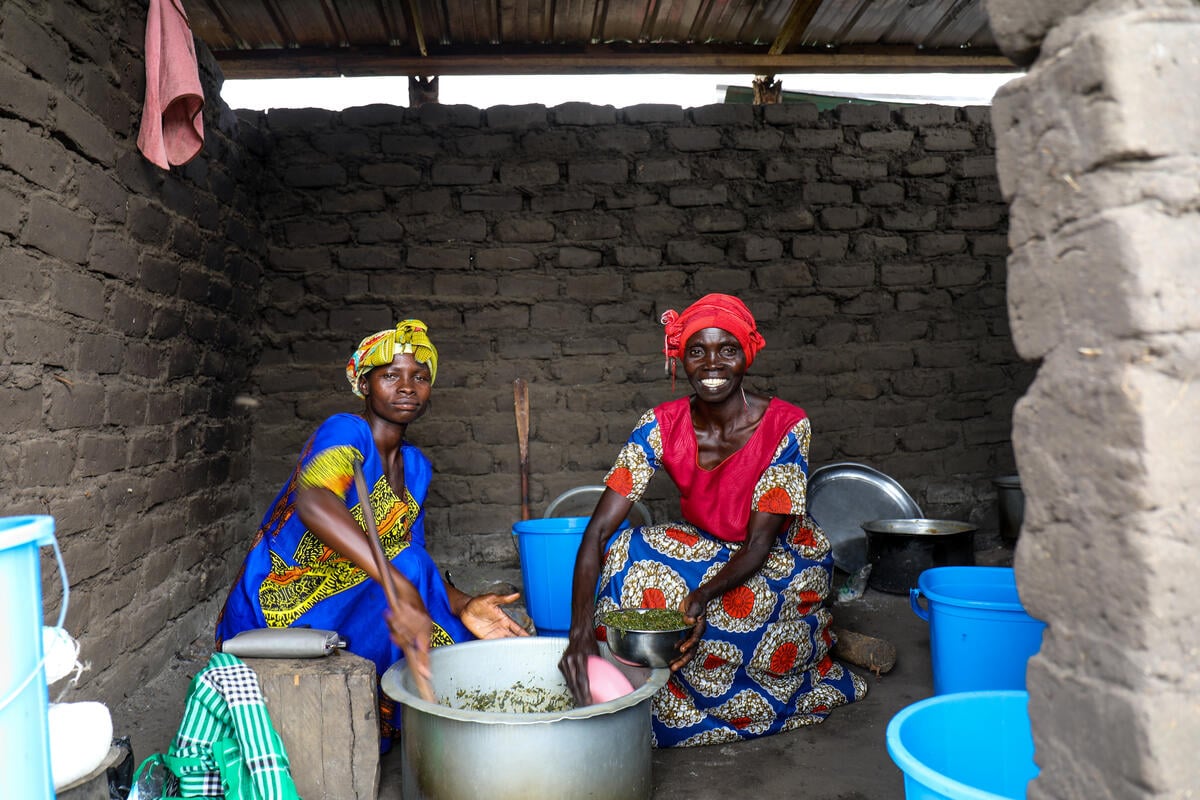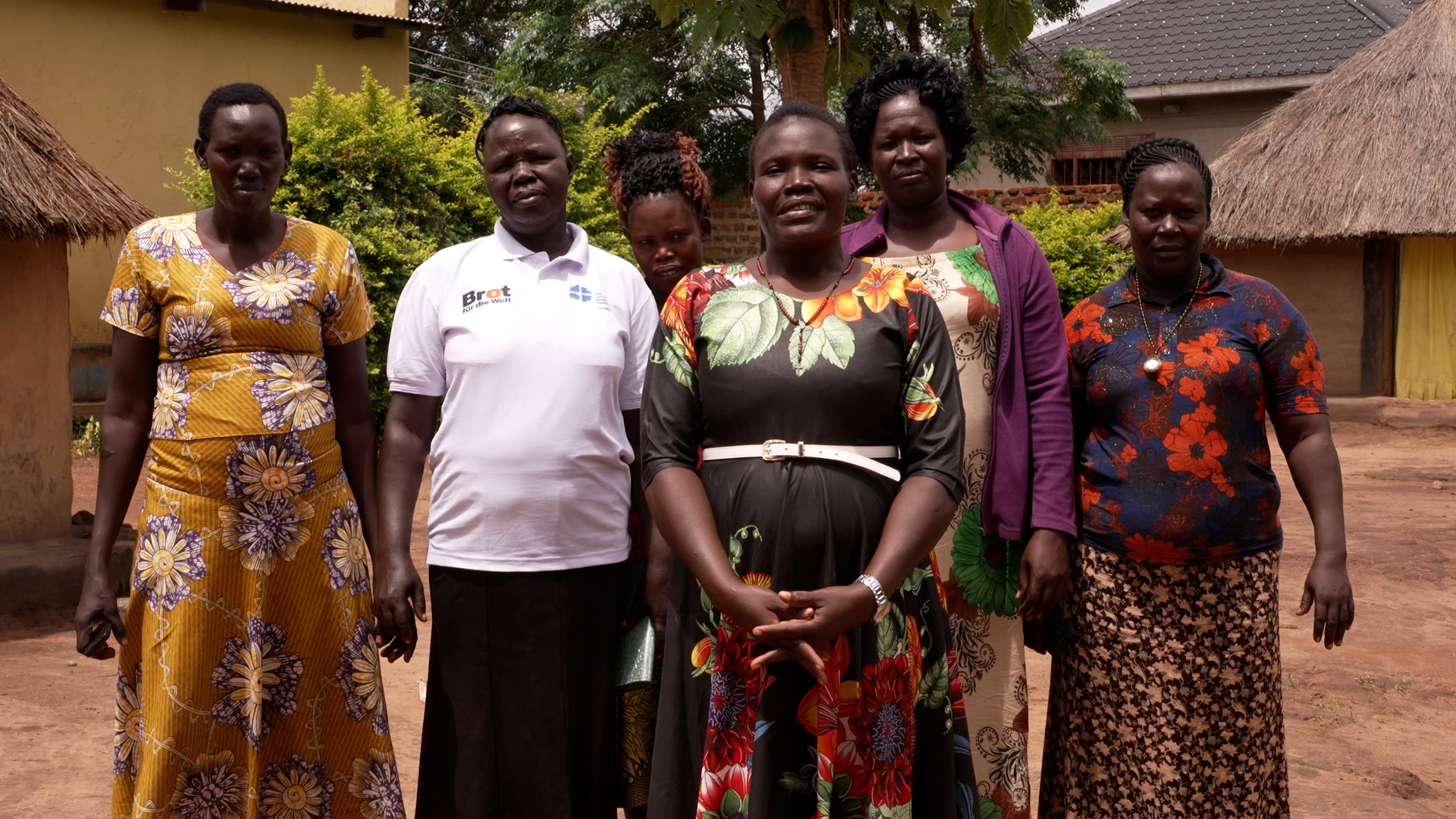As South Sudan turns nine, its people remain committed to peace
As South Sudan turns nine, its people remain committed to peace
It all began when she deescalated an argument at a water pump in the Don Bosco site for Internally Displaced Persons in Juba, South Sudan, where long lines in the hot sun often lead to short tempers and jostling.
Then she staged an intervention for an alcoholic neighbour and helped a woman access medical care following a sexual assault.
Now, Salwa Atoo, a 37-year-old mother of seven with twinkling eyes and a no-nonsense attitude, is the neighborhood’s go-to conflict mediator. From squabbles over borrowed kitchenware to domestic violence – if there is a problem in Don Bosco, Salwa knows about it and is working on a solution.
“I don’t know why people come to me for help,” she says.
Salwa is a tailor and has no formal education. Before settling in Don Bosco in 2014 after losing her husband and home to the civil war, she lived her whole life in a small, rural village where she was taught “a woman had no right to speak before men.”
But today, she’s proud that she can look after her community.
Nine years after South Sudan’s independence, seven years after the start of a bloody civil war and two years after the parties to the conflict signed a peace agreement, much remains to be done in the world’s youngest country to ensure a safe, stable future for its people.
While the parties to the conflict have formed a new, unified government, the peace deal is yet to be fully implemented and millions remain displaced – nearly 1.7 million within South Sudan and more than 2.2 million as refugees in neighbouring countries.
Armed conflict continues between the government and non-signatories to the peace agreement in some areas, while in others, inter-communal violence fueled by competition over resources, easy access to arms and weak rule of law is on the rise.
“In nation building, everyone has their own role to play.”
The impact of the violence has been further compounded by the current COVID-19 pandemic, with restrictions on movement due to the country’s lockdown measures hampering the ability of humanitarian organisations to deliver aid.
Amidst all the uncertainty, South Sudanese like Salwa have continued to support one another as they have through decades of war and displacement, before and after the country was founded. Hers is just one example of how South Sudan’s people are buoying up each other’s hopes along their young country’s road to lasting peace through small, everyday actions.
“In nation building, everyone has their own role to play,” says returned refugee Angelina Nyajima.
Angelina founded a nonprofit, called Hope Restoration South Sudan, to implement peacebuilding and women’s empowerment projects, after spending 15 years in refugee camps in Ethiopia and Kenya. The NGO increased security for women and girls in Leer, Unity, by renovating three roads overgrown by brush, that had become a haven for criminals. Right now, Hope Restoration is building a traditional courthouse to support efforts to peacefully settle familial and community disputes.
Others’ contributions are more low key – but no less impactful. Isaac Mabok, an IDP living in a UN Protection of Civilians (POC) site in Malakal, Upper Nile, is helping to build a better future for South Sudan by modeling resilience and hard work for his seven children. He refused to give up after losing his leg to a gunshot wound and consequently, his livelihood as a farmer. Instead, he found a vocational training program and picked up a new skill.
“When men go away in war, so much is left up to women.”
“You have to try hard to avoid being idle,” he says. “Stand up in support of yourself, your family and your community despite all challenges and difficulties met, while with prayer and faith in God, hope for a better tomorrow.”
Adesa Fiada volunteers as a teacher at the Anika Women’s Association in Yambio, South Sudan, which brings women and girls together to share skills and resources.
“Taking a tailoring course while I was a refugee in the Democratic Republic of the Congo gave me purpose during a difficult time and helped me to care for my family,” she says. “When men go away in war, so much is left up to women.”
- See also: UNHCR calls on South Sudan leaders to reinvigorate peace efforts on 9th anniversary of independence
Since Akendru Onesta returned to South Sudan from Uganda, where she grew up in a refugee camp, she has been using the money she earns from her job as a field associate for UNHCR, the UN Refugee Agency, to pay tuition fees for five nieces and nephews. In this way, she says, she hopes to “help them to one day help others.”
“We have nothing if we don’t have hope.”
Each of these individuals’ roads – like South Sudan’s as a whole – have been fraught with challenges.
Each have wondered, as Angelina did after Hope Restoration’s offices were reduced to rubble at one point during the civil war, displacing her 15 employees: “What am I doing? Sometimes it feels like we are trying so hard, only to be dropped back to zero.”
But they choose to stay for their communities.
“We are nothing if we don’t have each other,” Angelina says. “We have nothing if we don’t have hope.”
Additional reporting by Martim Gray Pereira in JamJang and Serhii Chumakov in Malakal.









